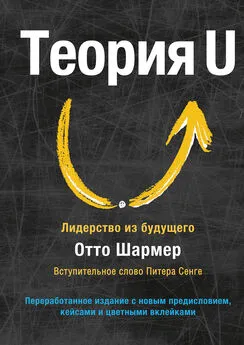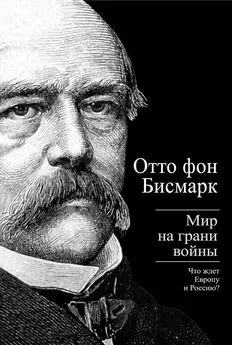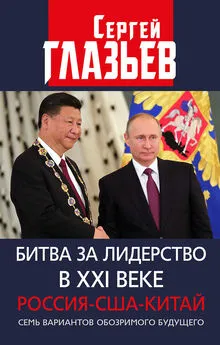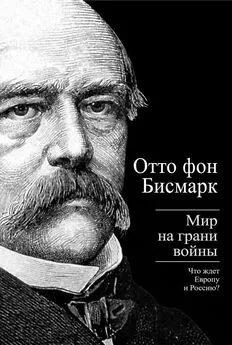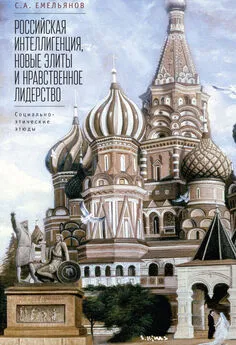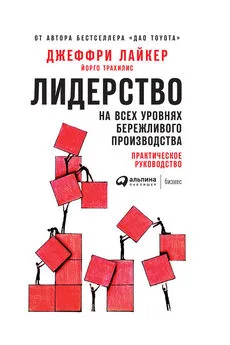Отто Шармер - Теория U. Лидерство из будущего
- Название:Теория U. Лидерство из будущего
- Автор:
- Жанр:
- Издательство:Литагент МИФ без БК
- Год:2019
- Город:Москва
- ISBN:978-5-00117-457-8
- Рейтинг:
- Избранное:Добавить в избранное
-
Отзывы:
-
Ваша оценка:
Отто Шармер - Теория U. Лидерство из будущего краткое содержание
Эта книга написана для лидеров и активных сторонников изменений в корпорациях, правительствах, неправительственных организациях и сообществах.
На русском языке публикуется впервые.
Теория U. Лидерство из будущего - читать онлайн бесплатно ознакомительный отрывок
Интервал:
Закладка:
Kao, John. 1996. Jamming: The Art and Discipline of Business Creativity. New York: HarperBusiness.
Kappler, Ekkehard. 2006. Betriebswirtschaftslehre denken: Adorno für Betriebswirte– Eine kritische Einführung zur Einführung. In Unternehmensbewertung, Rechnungslegung und Prüfung. Edited by Gunther Meeh. Sonderdruck. Hamburg: Verlag Dr. Kovac.
Kappler, Ekkehard. 2004. Bild und Realität: Controllingtheorie als kritische Bildtheorie. Ein Ansatz zu einer umfassenden Controllingtheorie, die nicht umklammert. In Controlling. Theorien und Konzeptionen. Edited by Ewald Scherm and Gotthard Pietsch. München: Verlag Franz Vahlen.
Kappler, Ekkehard. 2003. Theorie aus der Praxis für die Praxis – Zur Wirksamkeit strategischer Unternehmensführung. In Perspektiven der Strategischen Unternehmensführung. Theorien – Konzepte – Anwendungen. Edited by Max J. Ringlstetter, Herbert A. Henzler and Michael Mirow. Wiesbaden: Gabler Verlag.
Kappler, Ekkehard. 2002. “Controlling und Ästhetik.” Zeitschrift für Controlling und Management. 46 Jg., H. 6: 377.
Kappler, Ekkehard. 2000. Entgrenzung. Leitfragen als zentrales Element strategischen Controllings. In Jahrbuch für Controlling und Rechnungswesen. Edited by Gerhard Seicht. Sonderdruck. LexisNexis Verlag ARD Orac.
Kappler, Ekkehard. 1998. Fit für Feränderung. In FIT durch Veränderung. Edited Clemens Heidack. Festschrift für Dr. Eberhard Merz. München und Mering: Rainer Hampp Verlag.
Kappler, Ekkehard, and Thomas Knoblauch. 1997. Innovationen-wie kommt das Neue in die Unternehmung? Gütersloh: Verlag Bertelsmann-Stiftung.
Katzenbach, Jon R., and Douglas K. Smith. 1994. The Wisdom of Teams: Creating the High-Performance Organization. San Francisco: HarperBusiness.
Kaeufer Katrin, Claus Otto Scharmer, and Ursula Versteegen. 2003. “Breathing Life into a Dying System.” Reflections 5, no. 3: 3–12.
Kaufmann, Walter, ed. 1954. The Portable Nietzsche. Translated by Walter Kaufmann. New York: Penguin.
Kegan, Robert. 1994. In Over Our Heads: The Mental Demands of Modern Life. Cambridge, MA and London: Harvard University Press.
Kegan, Robert. 1982. The Evolving Self: Problem and Process in Human Development. Cambridge, MA, and London: Harvard University Press.
Kegan, Robert and Lisa Laskow Lahey. 2000. How the Way We Talk Can Change the Way We Work. San Francisco: Jossey-Bass.
Keller, Pierre. 1999. Husserl and Heidegger on Human Experience. Cambridge, UK: Cambridge University Press.
Kelley, Tom. 2001. The Art of Innovation: Lessons in Creativity from IDEO, America’s Leading Design Firm. New York: Doubleday.
Kelly, Marjorie. 2001. The Divine Right of Capital: Dethroning the Corporate Aristocracy. San Francisco: Berrett-Koehler.
Kitaro, Nishida. 1987. Last Writings: Nothingness and the Religious Worldview. Honolulu: University of Hawaii Press.
Kolb, David. 1984. Experiential Learning: Experience as the Source of Learning and Development. Upper Saddle River, NJ: Financial Times/Prentice Hall.
Kotter, John P. 1996. Leading Change. Boston: Harvard Business School Press.
Kotter, John P, and Dan S. Cohen. 2002. The Heart of Change: Real-Life Stories of How People Change Their Organizations. Boston: Harvard Business School Press.
Krishnamurti, J., and David Bohm. 1985. The Ending of Time. San Francisco: HarperSanFrancisco.
Krogh, Georg von. 2000. Enabling Knowledge Creation: How to Unlock the Mystery of Tacit Knowledge and Release the Power of Innovation. Oxford: Oxford University Press.
Krogh, Georg von. 1998. “Care in Knowledge Creation.” California Management Review 40, no. 3: 133–153.
Krogh, Georg von, and Johan Roos. 1995. Organizational Epistemology. New York: St. Martin’s Press.
Krogh, Georg von, Ikujiro Nonaka, and Toshihiro Nishiguchi. 2000. Knowledge Creation: A Source of Value. London: Macmillan.
Lauenstein, Diether. 1974. Das Ich und die Gesellschaft: Philosophie Soziologie. Stuttgart: Verlag Freies Geistesleben.
Lave, Jean, et al. 1991. Situated Learning: Legitimate Peripheral Participation (Learning in Doing: Social, Cognitive & Computational Perspectives). Cambridge, UK: Cambridge University Press.
Lefort, Rosine, in collaboration with Robert Lefort. 1980. Birth of the Other. Translated by Marc Du Ry, Lindsay Watson, and Leonardo Rodríguez. Urbana and Chicago: University of Illinois Press.
Leonard, Dorothy. 1997. “Spark Innovation Through Empathic Design.” Harvard Business Review 75, no. 6: 102–113.
Lewin, Kurt. 1997. Resolving Social Conflicts & Field Theory in Social Science. Washington, DC: American Psychological Association.
Lievegoed, Bernard C. J. 1991. Developing Communities. Stroud, UK: Hawthorn Press. Lindenberg, Marc, and Coralie Bryant. 2001. Going Global: Transforming Relief and Development NGOs. Bloomfield, CT: Kumarian Press.
Lippitt, Lawrence L. 1998. Preferred Futuring. San Francisco: Berrett-Koehler. Richard M. Locke. 2003. “The Promise and Perils of Globalization: The Case of Nike,” in Management: Inventing and Delivering Its Future. Richard Schmalensee and Thomas A. Kochan, eds. Cambridge, MA, and London: MIT Press: 39–70.
Lowndes, Florin. 1997. Die Belebung des Herzchakra: Ein Leitfaden zu den Nebenübungen Rudolf Steiners. Stuttgart: Verlag Freies Geistesleben.
Luhmann, Niklas. 1995. Social Systems. Stanford, CA: Stanford University Press.
Lyotard, Jean-François. 1984. The Postmodern Condition: A Report on Knowledge. Translated by Geoff Bennington and Brian Massumi. Minneapolis: University of Minnesota Press.
Maanen, John Van, ed. 1998. Qualitative Studies of Organizations. Thousand Oaks, CA: Sage.
Maanen, John Van. 1995. Representation in Ethnography. Thousand Oaks, CA: Sage.
Maanen, John Van. 1988. Tales of the Field: On Writing Ethnography. Chicago and London: University of Chicago Press.
Maslow, Abraham H. 1998. Toward a Psychology of Being. 3rd ed. New York: John Wiley.
Maturana, Humberto R. 1999 “The Organization of the Living: A Theory of the Living Organization.” International Journal of Human-Computer Studies 51: 149–168 August 1999.
Maturana, Humberto R, and Francisco J. Varela. 1987. The Tree of Knowledge: The Biological Roots of Human Understanding. Boston and London: Shambhala.
McDonough, William, and Michael Braungart. 2002. Cradle to Cradle: Remaking the Way We Make Things. New York: North Point.
McTaggart, Lynne. 2003. The Field: The Quest for the Secret Force of the Universe. New York: Quill.
Mead, George Herbert. 1934. Mind, Self, & Society from the Standpoint of a Social Behaviorist. Edited by Charles W. Morris. Chicago and London: University of Chicago Press.
Merleau-Ponty, M. 1962. Phenomenology of Perception. Translated by Colin Smith. London and New York: Routledge.
Minsky, Marvin. 1988. The Society of Mind. New York: Simon & Schuster.
Mintzberg, Henry. 1983. Structures in Five: Designing Effective Organizations. Englewood Cliffs, NJ: Prentice Hall.
Moran, Dermot, and Timothy Mooney, eds. 2002. The Phenomenology Reader. London: Routledge.
Morgan, Gareth. 1996. Images of Organization. 2nd ed. Thousand Oaks, CA: Sage.
Nagasawa, Kunihiko. 1987. Das Ich im deutschen Idealismus und das Selbst im Zen- Buddhismus. Munich: Alber.
Nan Huai-Chin, Master. 2004. Diamond Sutra Explained. Translated by Hue En (Pia Giammasi). Florham Park, NJ: Primordia.
Nan Huai-Chin, Master. 1984. Tao & Longevity: Mind-Body Transformation. Translated by Wen Kuan Chu. York Beach, ME: Samuel Weiser.
Naydler, Jeremy, ed. 1996. Goethe on Science: A Selection of Goethe’s Writings. Edinburgh: Floris Books.
Nelson, Jane. 2002. Building Partnerships: Cooperation Between the United Nations System and the Private Sector. New York: United Nations Department of Public Information.
Neuhaus, Richard John. 1997. The End of Democracy? The Celebrated First Things Debate with Arguments Pro and Con and “The Anatomy of a Controversy.” Dallas: Spence.
Nietzsche, Friedrich. 1999. Thus Spoke Zarathustra. Mineloa, New York: Dover Publications.
Nietzsche, Friedrich. 1964. Der Wille zur Macht. Stuttgart: Alfred Kroner Verlag.
Nishida, Kitaro. 1990. An Inquiry into the Good. New Haven: Yale University Press.
Nohria, Nitin, and Sumantra Ghoshal. 1997. The Differentiated Network: Organizing Multinational Corporations for Value Creation. San Francisco: Jossey-Bass.
Nonaka, Ikujiro. 1994. “A Dynamic Theory of Organizational Knowledge Creation.” Organization Science 5, no. 1: 14–37.
Nonaka, Ikujiro. 1991. “The Knowledge Creating Company.” Harvard Business Review 69, no. 6: 96–105.
Nonaka, Ikujiro, and Noboru Konno. 1998. “The Concept of Ba: Building a Foundation for Knowledge Creation.” California Management Review 50, no. 3: 40–54.
Nonaka, Ikujiro, and Hirotaka Takeuchi. 1995. The Knowledge-Creating Company: How Japanese Companies Create the Dynamics of Innovation. Oxford: Oxford University Press.
Nonaka, Ikujiro, and David Teece, eds. 2001. Managing Industrial Knowledge: Creation, Transfer, and Utilization. London: Sage.
Nonaka, Ikujiro, Ryoko Toyama, and Noboru Konno. 2000. “SECI, Ba and Leadership: A Unified Model of Dynamic Knowledge Creation.” Long Range Planning 33, no. 1.
Nonaka, Ikujiro, Ryoko Toyama, and Claus Otto Scharmer. 2001. “Building Ba to Enhance Knowledge Creation and Innovation at Large Firms.” Dialog on Leadership. https://www.presencing.org/dol/nonaka.
Normann, Richard. 2001. Reframing Business: When the Map Changes the Landscape. West Sussex, UK: John Wiley.
Normann, Richard, and Rafael Ramirez. 1998. Designing Interactive Strategy: From Value Chain to Value Constellation. Hoboken, NJ: John Wiley.
Northouse, Peter G. 2000. Leadership: Theory and Practice. 2nd ed. Thousand Oaks, CA: Sage.
Olkowski, Dorothea, and James Morley, eds. 1999. Merleau-Ponty, Interiority and Exteriority, Psychic Life and the World. Albany: State University of New York Press.
Olson, Mancur. 1965. The Logic of Collective Action: Public Goods and the Theory of Groups. Cambridge, MA.: Harvard University Press.
Orlikowski, Wanda J., JoAnne Yates, and Kazuo Okamura. 2000. “Using Technology and Constituting Structures: A Practice Lens for Studying Technology in Organizations.” Organization Science, 11, 4: 404–428.
Orlikowski, Wanda J., 1992. “The Duality of Technology: Rethinking the Concept of Technology in Organizations,” Organization Science, 3, 3: 398–427.
Owen, Harrison. 1997. Open Space Technology: A User’s Guide. San Francisco: Berrett-Koehler.
Oxfam International. 2002. Rigged Rules and Double Standards: Trade, Globalization, and the Fight Against Poverty. Oxford: Oxfam International.
Parkes, Graham, ed. 1990. Heidegger and Asian Thought. Honolulu: University of Hawaii Press.
Pearce, Joseph Chilton. 2002. The Biology of Transcendence: A Blueprint of the Human Spirit. Rochester, VT: Park Street Press.
Perkins, John. 2004. Confessions of an Economic Hit Man. San Francisco, CA: Berrett Koehler.
Perlas, Nicanor. 2003. Shaping Globalizations: Civil Society, Cultural Power and Threefolding. Gabriola, Canada: New Society.
Perls, Frederick S., Ralph F. Hefferline, and Paul Goodman. 2000. Gestalttherapie: Praxis. Translated by Wolfgang Krege and Monika Ross. 5th ed. Munich: Klett-Cotta Deutscher Taschenbuch Verlag.
Peters, Thomas J., and Robert H. Waterman. 1982. In Search of Excellence: Lessons from America’s Best-Run Companies. New York: HarperCollins.
Peterson, Peter G. 2004. Running on Empty. New York: Farrar, Straus and Giroux.
Pinchbeck, Daniel. 2006. 2012 The Return of Quetzalcoatl. New York: Jeremy P Tarcher/Penguin.
Читать дальшеИнтервал:
Закладка:
